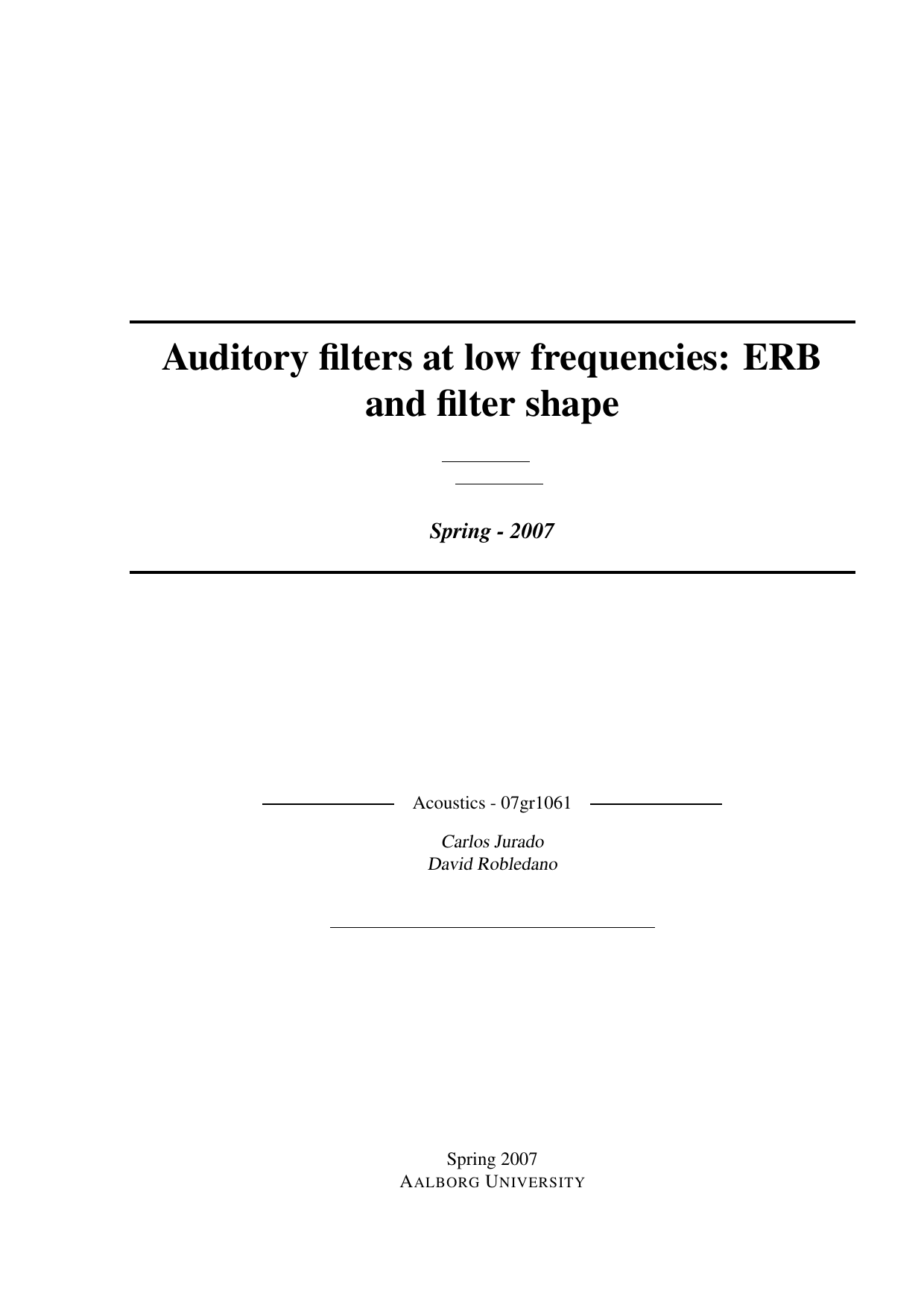
Horelsens filtre ved lave frekvenser: ERB og filterform
Translated title
Auditory filters at low frequencies: ERB and filter shape
Authors
Term
4. term
Education
Publication year
2007
Submitted on
2007-06-06
Pages
125
Abstract
Exposure and effects of low frequency noises demand a better understanding of auditory filtering at low frequencies. Given that below 100 Hz, auditory filters have not been systematically studied, an effort was done in this project to better describe auditory filters in this less inspected frequency region. Therefore, filter shapes and ERBs of the auditory filters in the range 31.5-125 Hz have been analyzed and explored by means of listening experiments. The center frequencies 31.5, 50, 80 and 125 Hz were tested. Experiments where performed under binaural exposure conditions in a room conditioned for controlled low frequency sound reproduction. To obtain the auditory filter properties, the notched noise method was applied. The measurements consisted on obtaining a number of thresholds for tones at the selected center frequencies in the presence of a notched noise masker around the tone. With these data, the auditory filters were derived by fitting them to the rounded exponential model. To account for outer and middle ear attenuation, individual equal loudness contours were measured and the notched noise stimuli were accordingly compensated. Results indicate that the filter shape, under a noise level of 54 dB, is generally symmetrical in this frequency region. It was found that the ERB continues to decrease below 100 Hz, reaching an average bandwidth of 17 Hz at 31.5 Hz. Besides, the dynamic range of the auditory filter was found to be more limited at 31.5 Hz.
Documents
